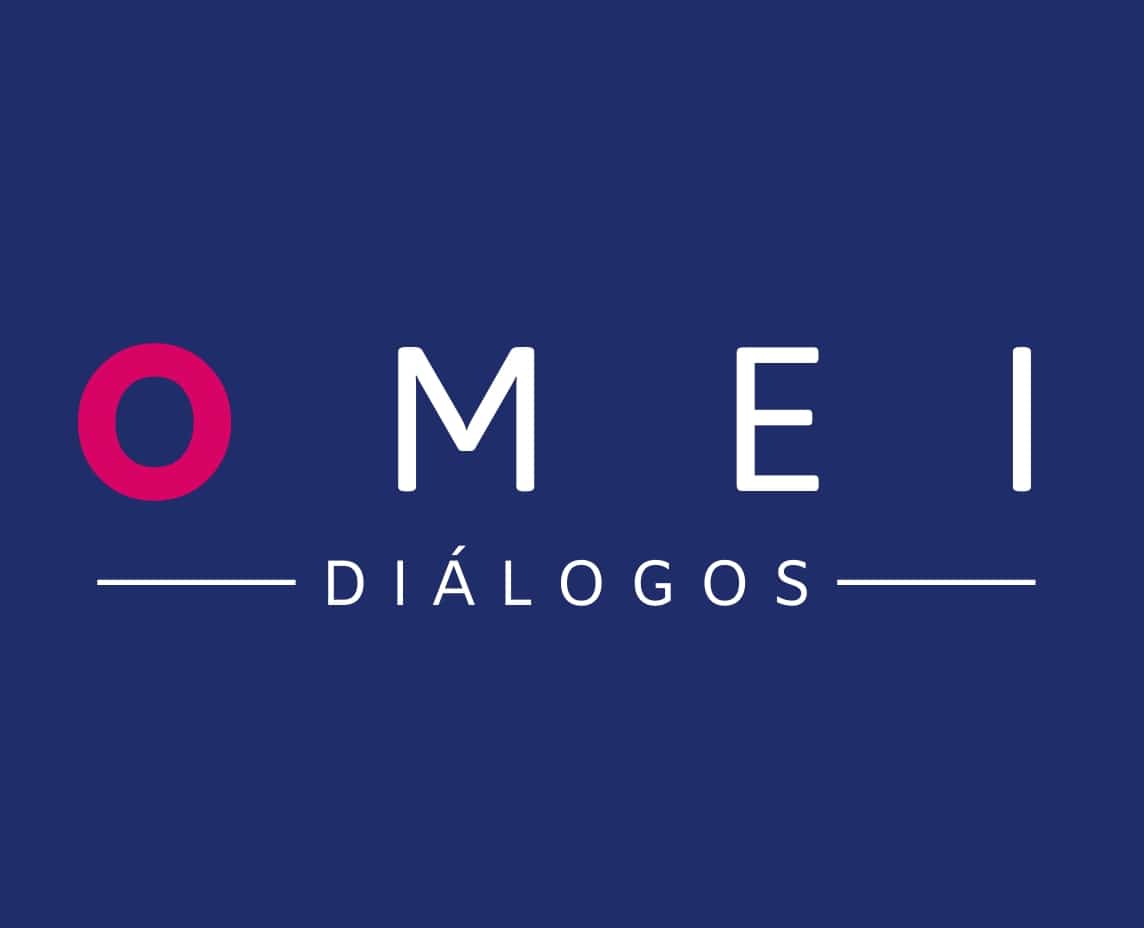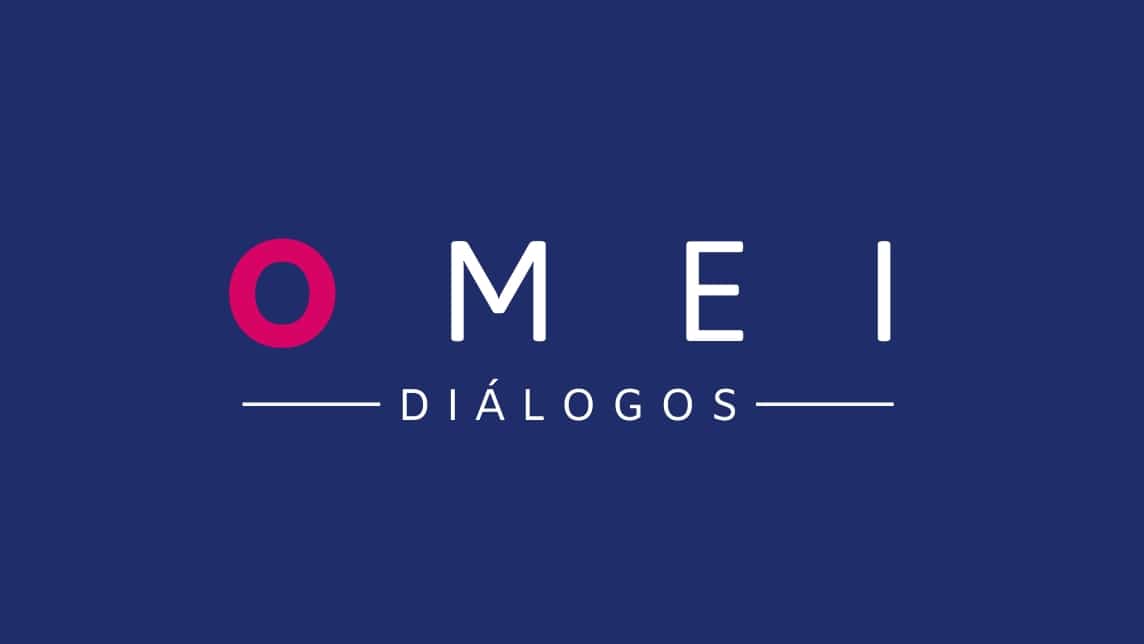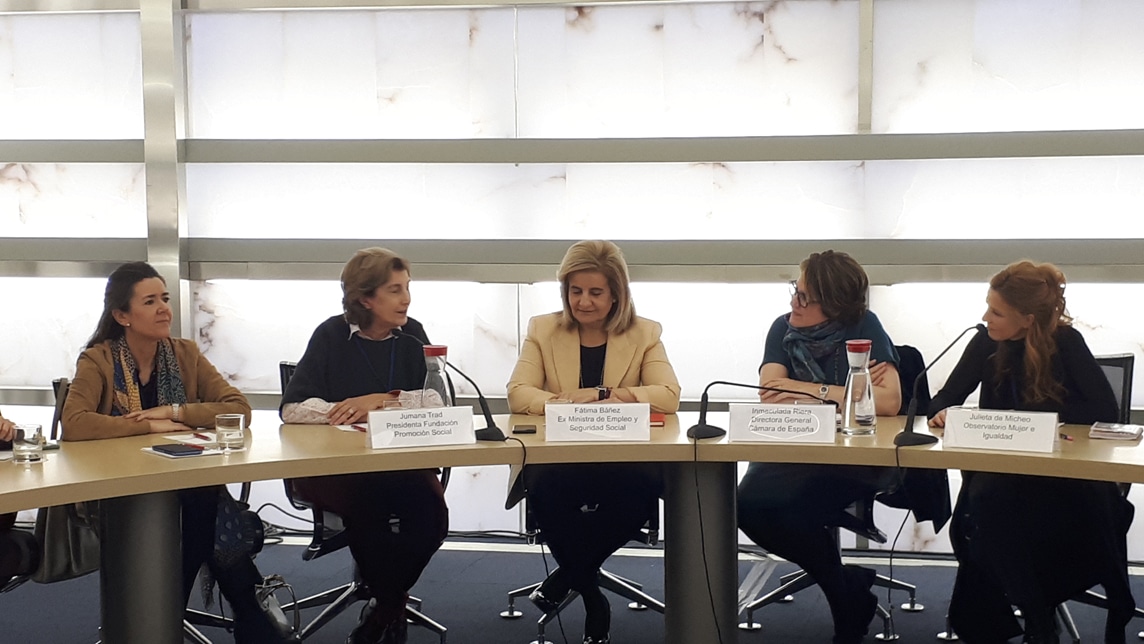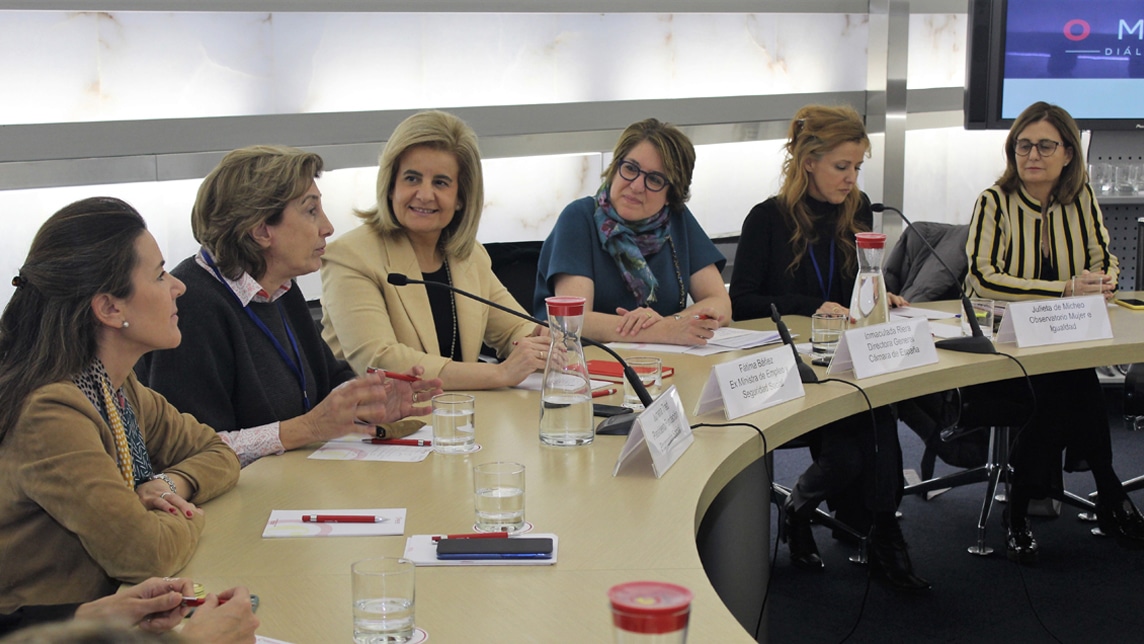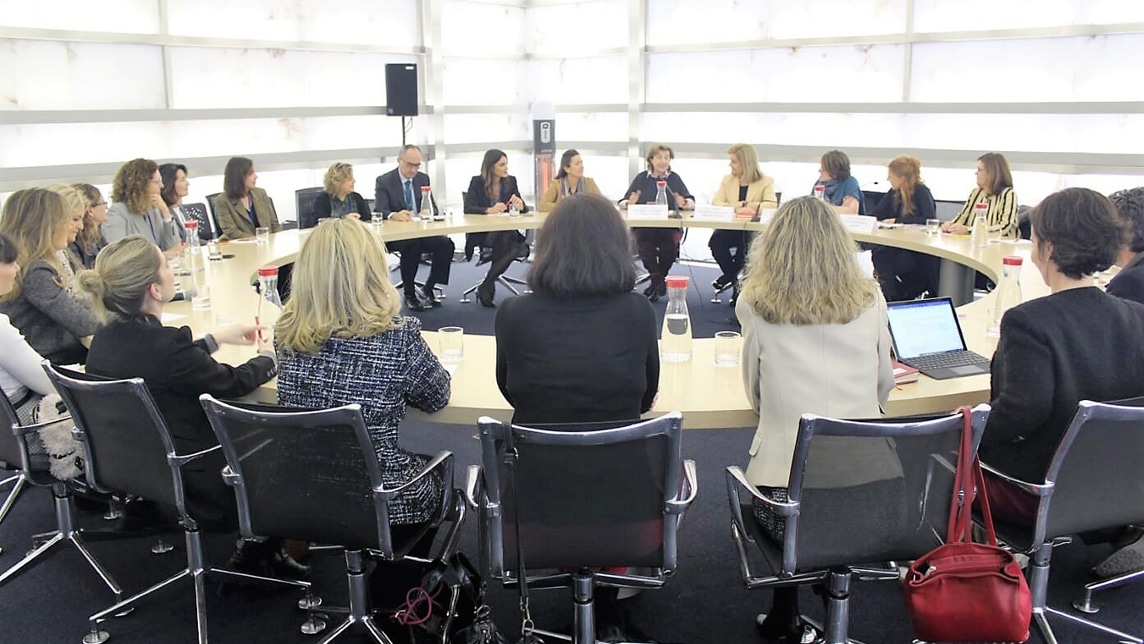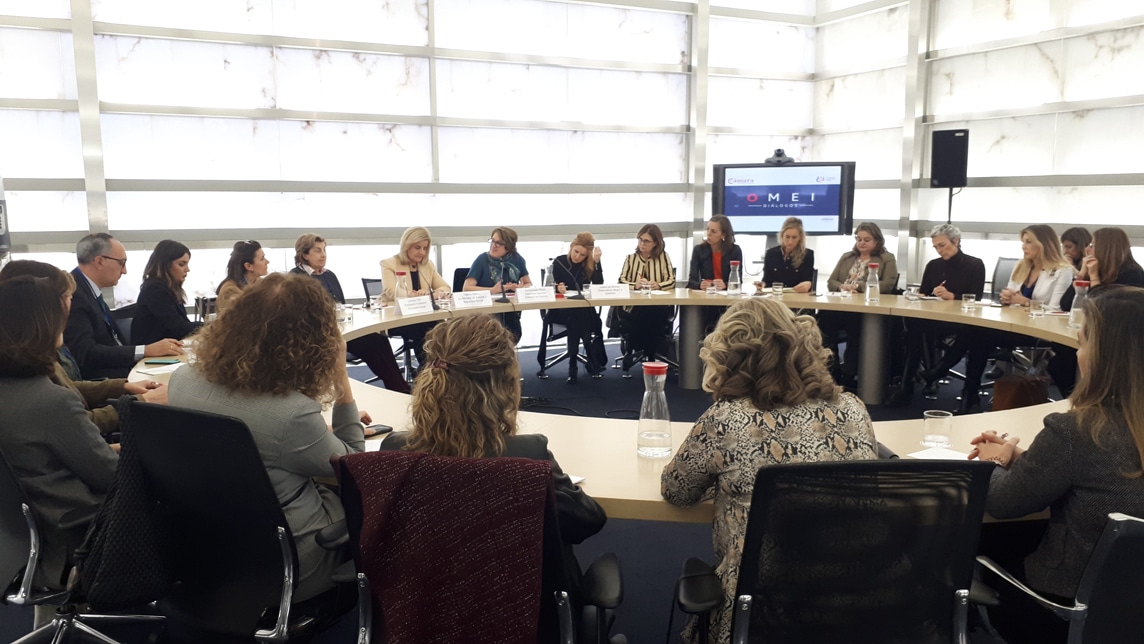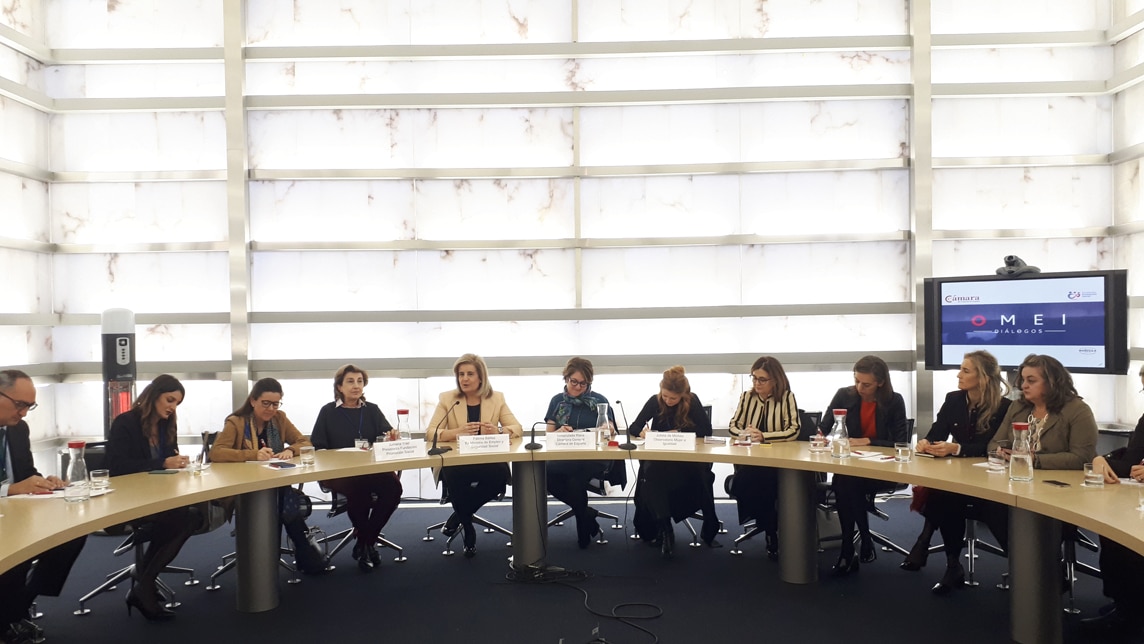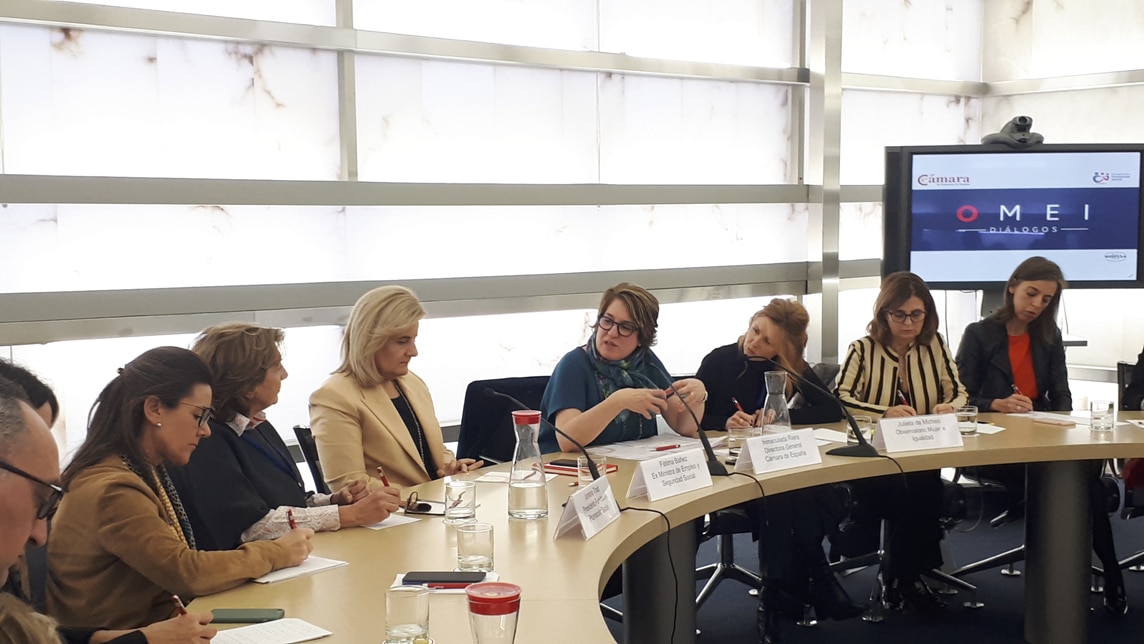The Spanish Chamber of Commerce hosts the first edition of this forum promoted by the Women and Equality Observatory (OMEI) of the Social Promotion Foundation and which has been sponsored by the Rodilla restoration chain.
The employability of women in Spain has been the central theme of this first debate, taking as reference the 25 years since the IV World Conference on Women, held in Beijing in 1995, to analyze the achievements and challenges to be faced in the immediate future.
Jumana Trad, President of the Social Promotion Foundation, has opened the event, highlighting the work of the Foundation since its inception for the training of women oriented to employment and leadership, to promote their social participation and access to productive resources, as an essential element to achieve true development.
Next, Julieta de Micheo, from the Women and Equality Observatory (OMEI), moderated a dialogue between Fátima Báñez, Former Minister of Employment and Social Security, and Inmaculada Riera, General Director of the Spanish Chamber of Commerce, to reflect and exchange ideas on issues related to the employability of women in Spain: how their situation has changed in this period, to what extent legislative measures influence it or what initiatives can be put in place to boost it.
Thus, it has been shown that progress in equal opportunities between men and women in the last 25 years is evident, but there is still much work to be done. To achieve this, employment is configured as the beginning of everything else.
Hence, although the rate of incorporation of women into the labor market and their presence in the business environment has increased, and the wage gap, reduced, to continue advancing, it is necessary to promote STEM vocations among women (science, technology, engineering, and mathematics), to respond to the digital transformation, which is presented as an opportunity for the future.
There are also other challenges that imply the promotion of proactive policies; equal opportunities without restrictions; Innovation and communication.
To face these challenges, legislative changes and social transformation through education and training, with the involvement of the administration, institutions, companies and civil society, are essential.
In addition to this dialogue, about thirty experts from different fields of civil society, such as corporations and companies of a social nature (ONCE, ILUNION), public and private companies (Ferrovial, Grupo Suez, Metro de Madrid), institutes and medical insurance (ASISA, IVADE, ituSalud), banking (Crédit Agricole Banca Privada), foundations (Fundación Telefónica, Fundación Chávarri por el Bien Común, Junior Achievement), universities (UCAM, Universidad Rey Juan Carlos), business schools (IMF Business School, INSEAD), professional associations (Colegio de Ingenieros de Caminos, Colegio de Mediadores de Seguros de Madrid) and media (Agencia EFE).





